Before they were born, their father, while studying in the U.S. during the 1920's
became a fan of American jazz and he returned to Japan with a collection of
jazz and country music recordings. It was from this collection, years later,
that the country music songs were to have a special appeal for the two
young Ozaki boys, shaping their musical tastes.
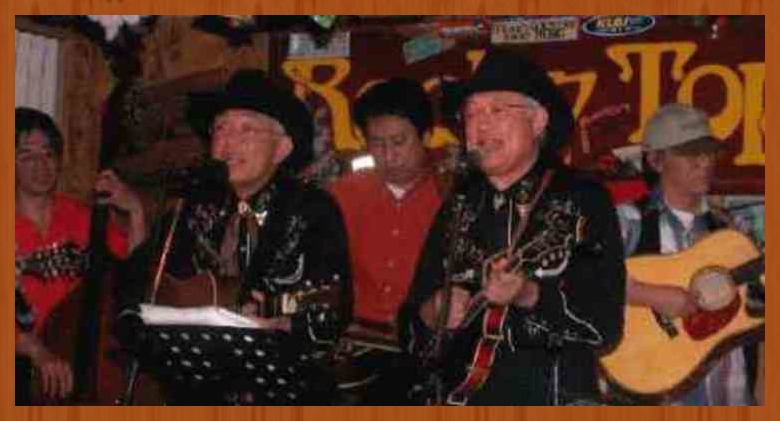 While World War II was still in progress, the two young brothers listened to
While World War II was still in progress, the two young brothers listened to
the country music records and memorized the songs. Soon after the war ended
in 1945, the brothers learned to play guitar and mandolin and went around to
U.S. army bases in Japan, performing for the G.I's. You can imagine the
reception these two young Japanese boys received from the troops as the
young Hisashi picked and yodeled his way through "Columbus Stockade
Blues" with older brother Yasushi accompanying on guitar.In the 1950's the Ozaki brothers billed themselves as the "East Mountain Boys"
(taking the name from the mountains ringing their hometown of Kyoto) and
performed on a morning radio show in Kyoto as seen in this photo of that time: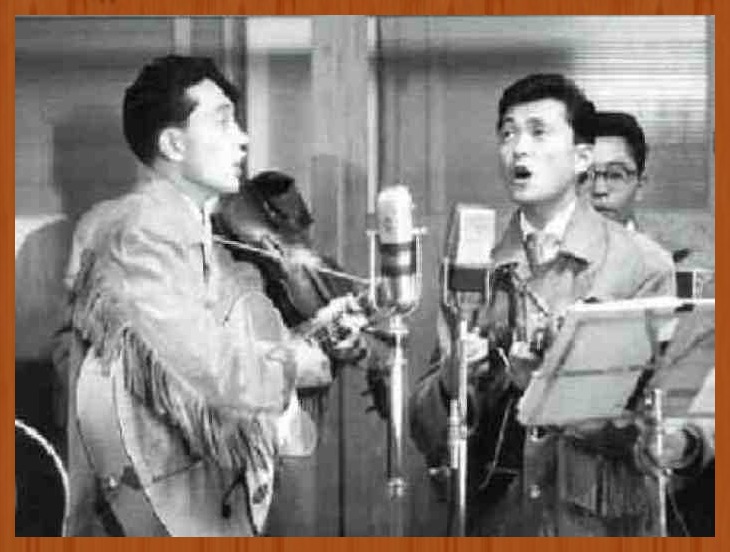 In addition to foot stomping bluegrass tunes and country's sad tales of broken
In addition to foot stomping bluegrass tunes and country's sad tales of broken
love, the Ozaki brothers have a hefty "play book" of southern gospel
songs which they work into every performance. They came to visit me a few years ago and my son and I took them to a
club in Chicago where, after talking to the leader of the country band
performing that night, the brothers were invited on stage to do a few
songs and "Columbus Stockade" once again brought down the house!In 2009, the Ozaki brothers received recognition as "Pioneers of Bluegrass"
by the International Bluegrass Music Museum in Owensboro, Kentucky.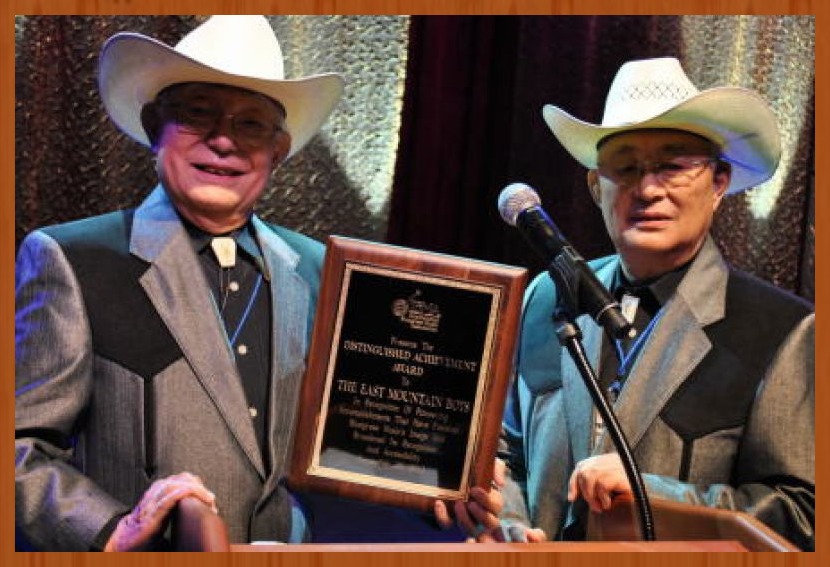 In the Ginza district of Tokyo, there are two fine bluegrass/country music clubs,
In the Ginza district of Tokyo, there are two fine bluegrass/country music clubs,
"Nashville" and "Rocky Top"(where drinks are ordered as often by the bottle as
by the glass). Here are the Ozaki brothers in my favorite club,"Rocky Top"
(there's a bottle of 'Early Times' bourbon with my name on it behind the bar
and you can usually find me there from opening to closing most nights when
I'm in Tokyo). That's Shinzi Kozima behind them on dobro and Masuo
Sasabe on guitar. Sixty seats is a full house, packed to the walls! 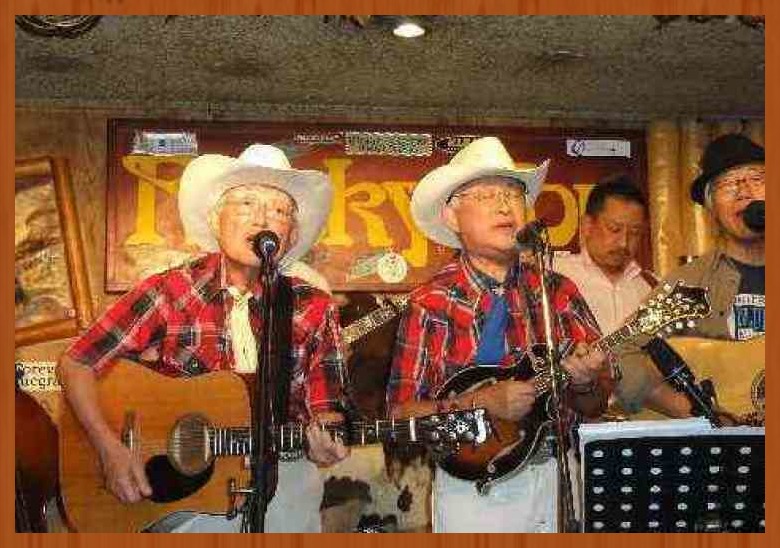 Shown here is the width of the entire stage which is also about the width of
Shown here is the width of the entire stage which is also about the width of
the club - the room extends back from the stage about 30 feet to a bar,
well attended by Mr. Taguchi. This gives you a rough idea of its size;
very intimate and very friendly as are most such clubs in Japan.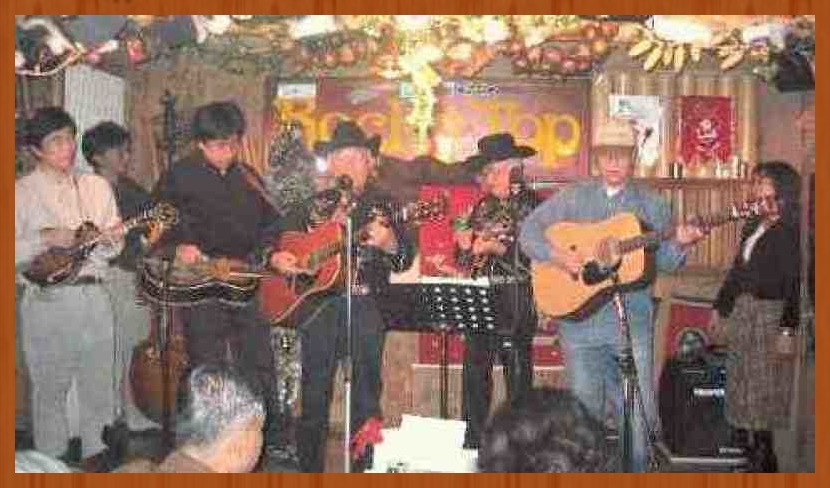 The
fellow picking the Martin D45 guitar, Masuo Sasabi (architect by day),
The
fellow picking the Martin D45 guitar, Masuo Sasabi (architect by day),
is one of the finest bluegrass singers in Japan and has headed up various bands
including "New Apple Seed," "General Store" and currently, "The Blue Side
of Lonesome." For several years running, Sasabi-san has been invited
to perform at the bluegrass festival in Guthrie, Oklahoma.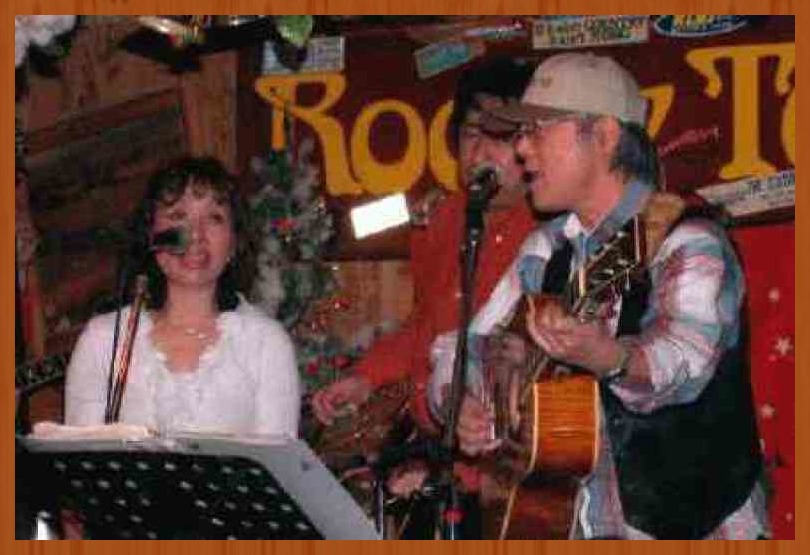 Another multi talented group of musicians perform on weekends at "Kon Ton Kan,"
Another multi talented group of musicians perform on weekends at "Kon Ton Kan,"
a coffee house in western Tokyo. They're called "Tetsu Kabuto" which translates as
"Steel Helmet" and their repertoire ranges from "Earl's Breakdown," "Fireball
Mail," and "Daybreak in Dixie" to a mind blowing version of "Caravan"
featuring some truly brilliant mandolin work by Takeo Nakajima.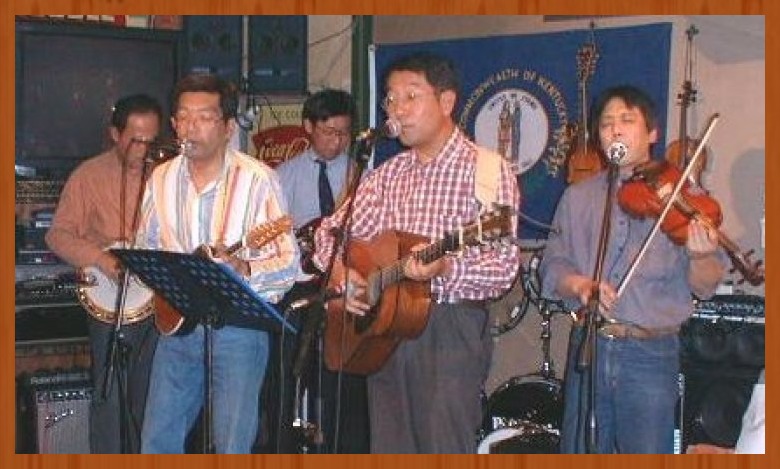 Bluegrass/country musicians in Japan often play with two or more different bands
Bluegrass/country musicians in Japan often play with two or more different bands
so it's quite likely to see the same banjo player, guitarist or vocalist appearing
with another band as is the case with the fiddler from "Tetsu Kabuto"
doing similar duty with the long running "One and Only"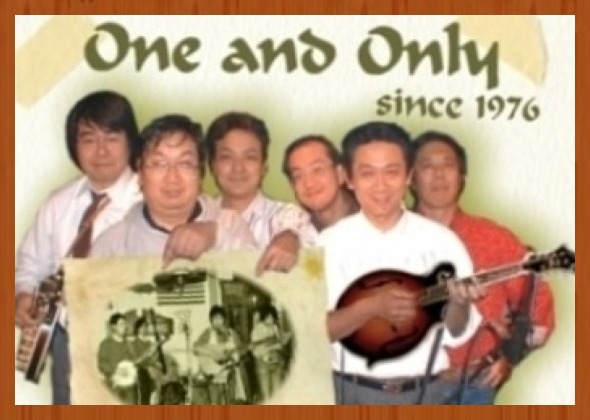 Another group I've always enjoyed at Kon Ton Kan is the band called
Another group I've always enjoyed at Kon Ton Kan is the band called
"Keep on the Grass." Here we see the banjo picker from "One an Only"
doing double duty
with this group. That's Toshiyuki Mizuyoshi (a "One
and Only" member as well) in the center belting out his spirited
vocal of "Jada" or "Nagasaki" or some other jazz classic.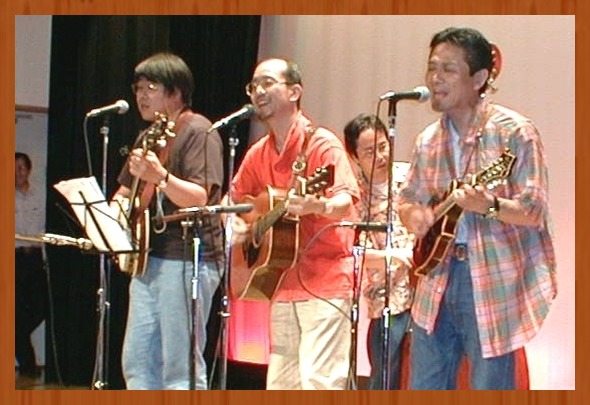 Tokyo is home to scores of bluegrass and country bands whose members all have
Tokyo is home to scores of bluegrass and country bands whose members all have
day jobs; they play for pure enjoyment above all else! In these days, that in itself
is refreshing and believe me, it comes across in their music! No matter where you
hear it played, in Tennessee, Chicago, cities in Europe or Japan, for me there's an
honesty and sincerity to country and bluegrass music that comes across loud and
clear and nowhere do I find this more evident than in the intimate, hospitable
"hole-in-the-wall" clubs and pubs of Japan.
~
For more on this subject, start by checking "Rocky Top Ginza" on YouTube.
And, should you ever get the chance to visit Japan, make one of your stops Tokyo's
Ginza district and drop in to Rocky Top, providing Bluegrass and Country music
for more than forty years. It's located at Ginza 7-8-19, Chuo-ku on the 3rd floor
of the Tokyo building. Tel. 03-3571-1955. Don't worry about not being able to
speak Japanese, the music is universal, the beer is always cold, the price is right,
a smiling Taguchi-san is there to welcome you with a hearty "irrashai" and
there's always someone there anxious to practice their English!
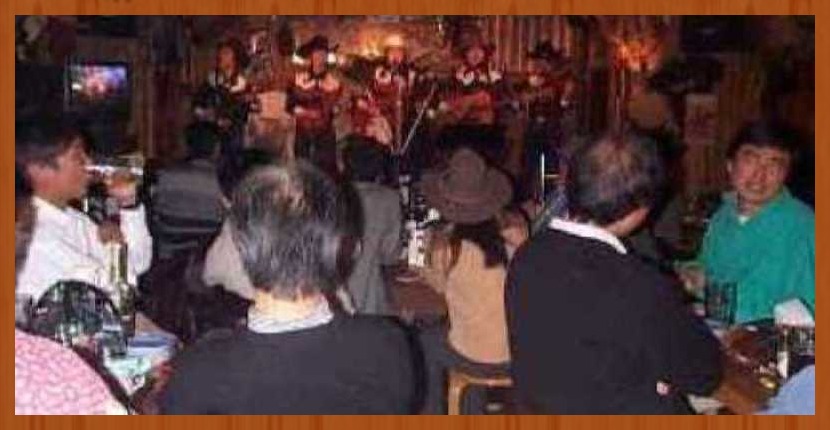 ~ BACK ~
~ BACK ~ ~ NEXT ~
~ NEXT ~



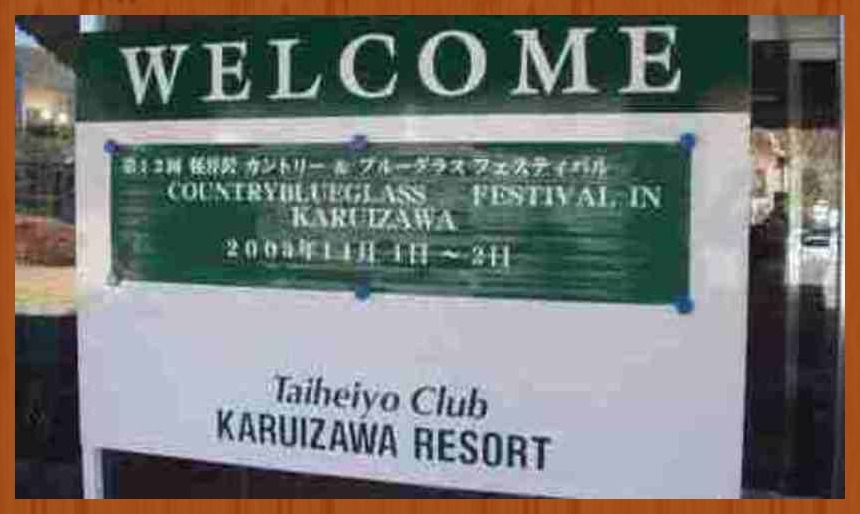

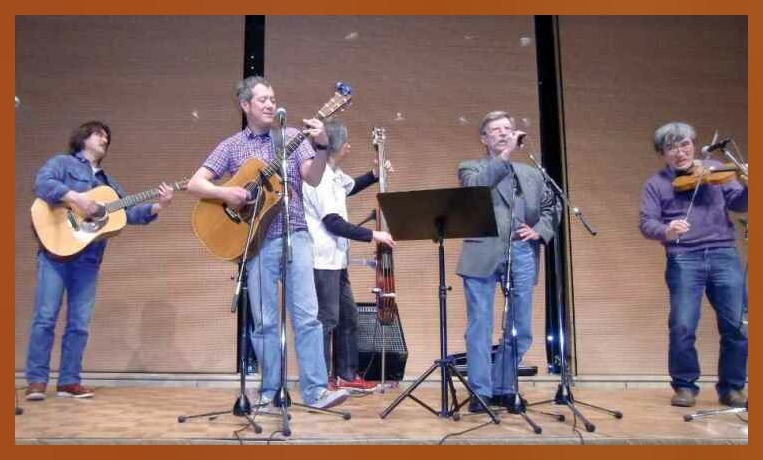
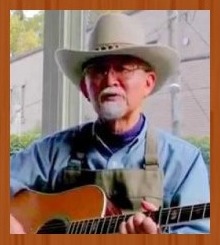
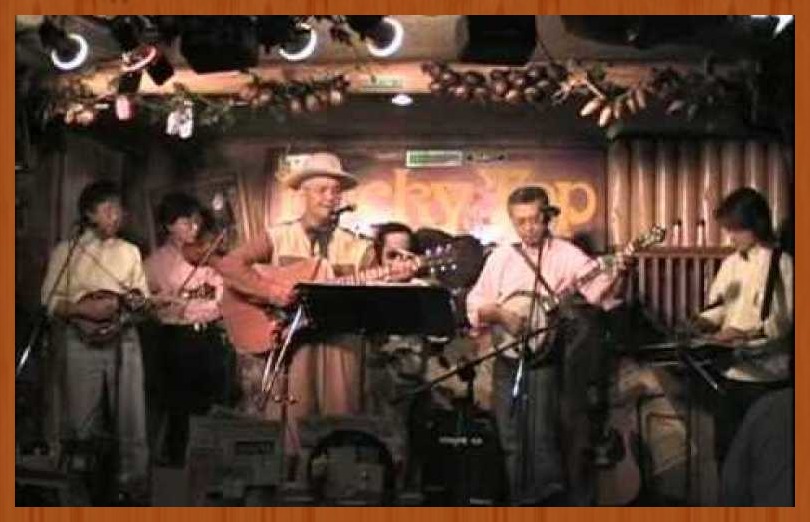
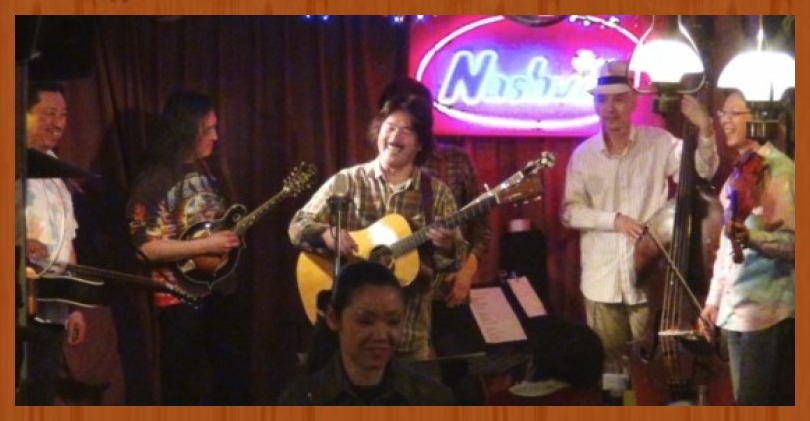
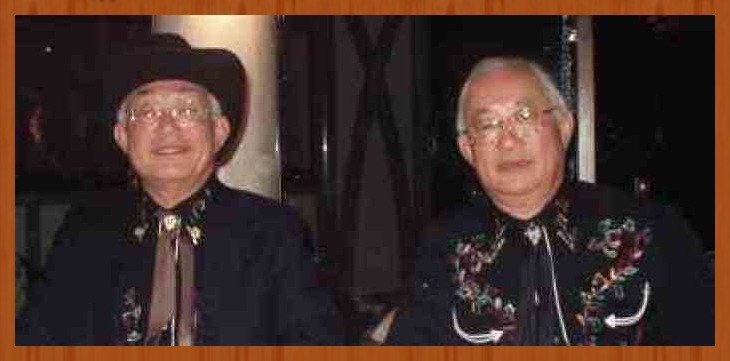











 ~ NEXT ~
~ NEXT ~

